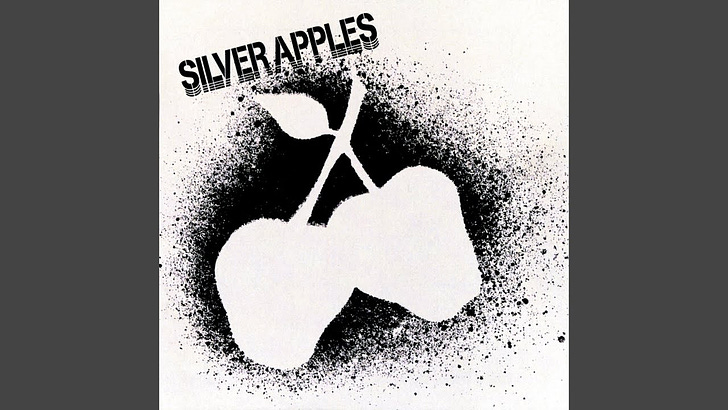iPod syndrome: Why digital "content" leaves you exhausted
1,000 songs (and anxiety dreams) in your pocket
The scene: a dorm room in snow-stormy New England during the winter of 2006-7.
The dramatis personae: Me and my musician friend from college.
The topic: The Silver Apples, a pioneering and obscure 1960s psychedelic band.
My college years (2004-2008) coincided with the peak of the iPod—the “1,000 songs in your pocket” machine—as cultural and technological phenomenon. The device had finally broken through on Microsoft Windows, moving beyond its niche origins when it had required both OS X and a FireWire cable1. Every college student in those years had a hulking Wintel desktop PC with a white USB-to-30-pin connector for syncing their iPods. The iPhone wouldn’t come along until 2007 and it wouldn’t really take off until the App Store debuted in 2008.
During Christmas 2004, I loaded up my click-wheel iPod with the songs from every CD I owned, overwhelmed by (in a good way) the expectation that I’d be able to listen to my entire music library on the go through those bundled white earbuds. But “overwhelmed” (in a bad way) was how things turned out: Even though I had a K. Rool-esque cache of tunes in my pocket, I never knew where to even start:
Did I spin up an Anjunabeats compilation yet again, knowing I’d have two hours of agreeable, melodic fare that I wouldn’t have to touch?
Or should I instead play “Mr. Brightside” again and see how far into “Hot Fuss” I can make it from there?
ORRRR did I instead venture to gild this musical lily (loving my mixed metaphors?) and add something I’d never even heard to the mountains of stuff I’d never hear anyway.
The Silver Apples, which the two of us listened to while 10 miles high, were in that moment destined for my literally unlistenable stash of thousands of songs—I recall telling my therapist at the time that it’d take 28 days to listen to my entire library if I took no breaks.
Seeming to realize this destructive, collection-ist King Midas intention in real-time, my friend in the context of a more general conversation about music said “The more music you have on your iPod, the less of it you listen to.”
Introducing iPod syndrome!
I can’t remember entire classes I took in college, but that one seemingly throwaway line in a manic conversation stuck with me because it gets at something far bigger than the iPod itself: Something I like to call iPod syndrome, or the feeling of losing agency to choose one’s own journey, because everything has been melted into sludgy, same-y feeling “content” designed to overwhelm and monetize you rather than actually be consumed, let alone enjoyed.
iPod syndrome is one of the most noticeable effects of being deluged by “content,” because you can feel it physically sometimes: maybe not to the degree as the crying woman in this iteration of the classic “first world problems” meme, but in the way your head can feel foggy and your body exhausted by needing to scroll through endless menus and apparently infinite choice.
Some common manifestations of iPod syndrome:
Trying to pick something to stream from Netflix’s vast library of quasi-anonymous original content, while avoiding its autoplaying trailers (you CAN do the latter, but the setting is somewhat obscure).
Giving up on any notion of a self-curated “library” in services such as Apple Music or Spotify and instead letting a black-box algorithm guide you—in such a way that you change your behavior to accommodate the algorithm’s preferences2, for instance, trying to “seed” it with something higher-profile to get more agreeable recommendations.
Looking at a huge backlog of video games, some of them requiring 100+ hours just to complete their main campaigns, feeling like (in truth, knowing) you’ll die before you be able to work through each one, and deciding to do nothing.
Worsening the above problem by downloading tons of digital ROMs of old games for free, instead of buying the more expensive original cartridges, to play on an Analogue Pocket. The presenter in the video below actually calls attention to the “iPod”-sized problem of having to choose between practically infinite ROM files, noting that he prefers actual carts.
None of this is fun! Somehow, the availability of everything as digital content at our fingertips isn’t a utopia but rather an anxious person’s nightmare, a completionist’s agony, a FOMO-riddled individual’s Götterdämmerung.
Overcoming iPod syndrome
Sorry to be the solutionist who immediately rolls out the solution to the problem they just identified! But as someone who had to produce unfeeling “content” at industrial scale, and as someone who fits into all there of the categories in the previous paragraph, I feel like I’ve steeled myself for this challenge of pushing back on being endlessly served “content” that gives no thought to my own agency or ability to discern the differences between types of art:
1. Use physical media
No kidding.
My pet theory is that the long-term revival in vinyl sales since the early 2000s is not just a factor of nostalgia, but of how vinyl resists the FOMO-esque “oh maybe I should switch to this other song I already know” urge. Setting it up and playing it takes work, and after you’ve set everything up, you kind of have to listen to the entire thing, rather than torture yourself scrolling through options. I remember my niece (born 1999) being surprised that a turntable couldn’t select or skip songs with a button, and pleasantly so! There’s no (or at least a lot less) time for content anxiety when you’re immersed in a record.
Beyond vinyl, it’s also worth embracing physical relics such as game discs and carts, CDs (they still sound better than not only streaming tracks, but also vinyl, too; funny I’d go back to them after ditching them for the iPod almost 20 years ago), and especially DVDs, Blu-ray Discs, and 4K Ultra HDs, given how awful video streams look by comparison and how frequently “content” gets pulled from the major streaming platforms.
Physical media doesn’t just give you great quality and durability: It also helps reduce anxiety by grounding you in the tangible world—you realize the actual labor and material that went into what you’re engaging with, instead of treating it as a cheap, discardable-to-FOMO intangible “in the cloud.” You exert effort into playing them, and in turn you give them more attention.
Don’t feel like you’re obliged to engage with “great” stuff
I could never get into Stevie Wonder. Or The Grateful Dead. Or Taylor Swift. And in a way, I’m relieved—that’s less clutter in my music library3. I used to have to scroll past tons of Grateful Dead live albums to find what I really wanted to listen to (probably “Hot Fuss,” the next letter in the alphabet). No more. Listen to Steve Albini’s advice about listening to Television instead:

Feel free to check out the “classics” but don't feel like you need to endure them, or pretend they’re something you like if you don’t. Prestige criticism of movies and music in particular is an institution designed to dominate you with someone’s particular decoding, when yours likely doesn’t match up. Don’t spend precious hours consuming “great content” solely to get a completionist badge for doing so. This isn’t a Steam game (or maybe it is in some instances…but you see what I’m saying).



Set limits
This one’s a little New Age-y and generic, I realize. But ultimately, we’re all analog thinking machines, bound by real physical constraints. Our brains aren’t computers that can “process” the world via digital symbols or “retrieve” perfect copies of memories from neurons. We get physically exhausted by “content” trying to bombard us with an amount of stuff we could never get through in an uninterrupted lifetime.
When you go to sign up for NBCUniversal’s Peacock streaming service, it boasts of having “80,000 hours” of #content to serve you—which you could complete if you sat in front of a TV for 9 years straight, by which time Peacock itself probably won’t even exist anymore. The notion of “content” makes us all into completionists trying to consume collections our brains can’t comprehend.
Chances are, you’re signing up to Peacock to watch one specific show, such as “The Office,” which at roughly $100 for a complete Blu-ray set, is a steal (you’d pay at least that much for an equivalent ad-free experience on Peacock for just one year). Realize that even amidst vast choice, you probably have narrower interest than you realize, and that a narrow focus is your friend, not your enemy—it’s a defense mechanism against anxiety, which both “content” in general and “iPod syndrome” instill in us.
FireWire was in ways superior to USB, but Apple’s decision to charge $1 per installed port killed its viability on PC. Still, it’ll always be a cool interface to me, because it was based on the proprietary serial link cable on the Nintendo Game Boy.
We did an entire podcast on this. Check it out!
I’m not saying any of this music is bad, only that it’s not for me.




